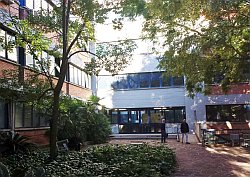
Affiliation:
Mailing address:
(Nucleo di Ricerca sulla Desertificazione – NRD)
Università degli Studi di Sassari
Viale Italia, 39
07100 Sassari – ItalyWeblink: http://www.uniss.it/nrd
NRD currently involves researchers from the University of Sassari focusing on physical, biological and socio-economic aspects of desertification, with particular reference to farming and livestock framed as socio-agro-ecological systems, soil and water resources management, renewable energy facilities, rural development and adaptive management under uncertainty. Investigations are carried out through systemic and participatory approaches in the framework of national and international research projects funded by EU, National governments, Autonomous Region of Sardinia, international public and private organizations. Networking and training activites are also part of NRD mission, to support the exchange of data and experiences at the international level and to promote scientific training of young researchers.
NRD is composed of some 40 senior researchers from eight Departments of the University of Sassari, who provide expertise and scientific support to the varied activities of the Centre. They form the General Assembly that elects the NRD Director, the Executive Board and proposes the members of the Scientific Board to the Academic Senate for approval.
The Centre is headed by the Directory, which is elected by the General Assembly every three years. The Director promotes NRD activities in agreement with the University statute and regulations, keeps relations will all academic bodies and coordinates the NRD staff. In agreement with the Scientific and Executive Boards, the Director proposes the annual plan of research and promotes research agreements with University Departments and with other national and international scientific institutions.
The Scientific Committee supports the general planning of NRD scientific activities and carries out internal audits; it also promotes and develops national and international networking.
The general administrative planning and management of NRD is in charge to the Executive Board that takes decisions on the administration of NRD financial resources, the recruitment of staff members and the proposal/approval of agreements of scientific collaboration with scientific institutions.
The Staff is organized in three functional areas: Scientific and Technical staff, Financial Management and Secretariat, Communication and External Relations. It is composed by MSc graduated people; most of the technical Staff members are post-doc or PhD students with skills including agronomy, hydrogeology, remote sensing, biodiversity, sociology, environmental engineering and agricultural economy.

